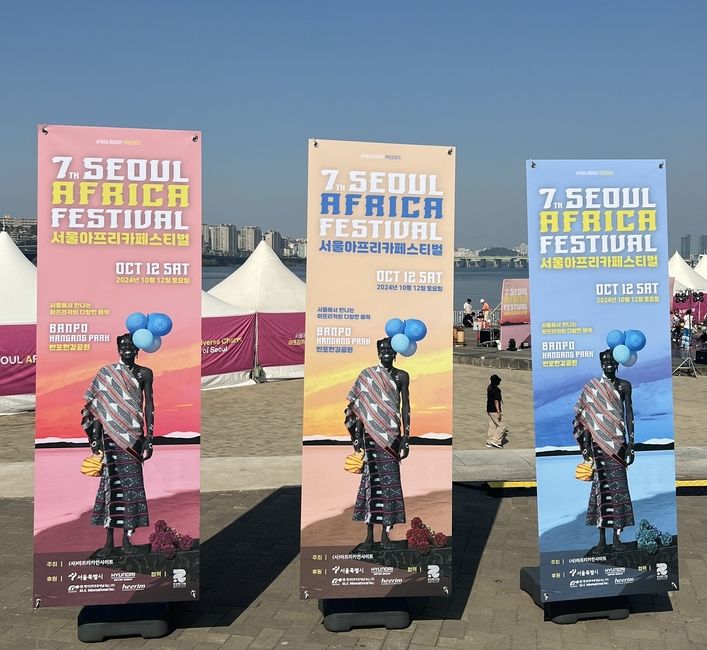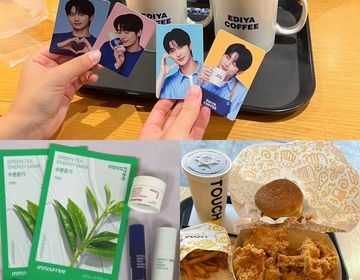Seoul's Asia Africa Festival 2024
Nigerian Identity in Seoul
I was born in Lagos, Nigeria, and immigrated to the United States with my family in 2011. My Nigerian-American identity has been a central part of my self-perception and how I view and experience the world. Coming to Seoul, I remember being advised that should someone ask, "Where are you from?" my response should only include my American identity. When I reply with, "I'm from New York!" I am met with bright eyes and smiles of recognition.
In the States, it's common for people to identify with "hyphenated identities". It's a testament to the abundant multicultural nature that the U.S. is known for. But with Korea being a more homogenous country, it's been my understanding that fewer people here utilize a hyphenated identity. As a result, I figured that during my time here, I would continue to opt for the more well-known aspect of my identity in my introductions. However, this was not the case at the Seoul Africa Festival.
Festival Atmosphere & Events
On Saturday, October 12th I attended the 7th Seoul Africa Festival in Banpo Hangang Park. They had an itinerary that began at 12:30 PM with a Parade. However, I didn't arrive until ~2:00 PM (classic late Nigerian I know I know) I’d attended with my friend who I’d met through CIEE and who is also West African(Cape Verdian!). When we arrived, I quickly noticed an increase in the amount of black and brown bodies in the space. I couldn't help but think, wowww so we’re all in Korea right now!? Many men and women came dressed in their traditional garb, while others repped their flag's colors (I saw a girl repping Nigeria by wearing a white skirt, green top, and large African continent earrings!) Many were also dressed in casual attire. There were also local Korean people there with their dates and their families!
Walking through the festival venue, one would pass by many stands boasting different foods, activities, books, and more! Many of the countries I saw represented were from East Africa. One of my favorite stands was the Ethiopia one! There, they taught people how to spell their name in Amharic, an Ethiopian spoken and written language, and then served freshly roasted Ethiopian coffee and bread. As we continued to walk, we heard the sounds of drums getting louder and louder as we got closer to the source. We then found a drum circle consisting of mostly Koreans and a few international people being led by a Korean man whose hands were deftly and skillfully moving across the drums. I found myself fighting the urge to dance to the music they were making! These were some fun moments that I felt exemplified the amount of cultural exchange occurring in this space
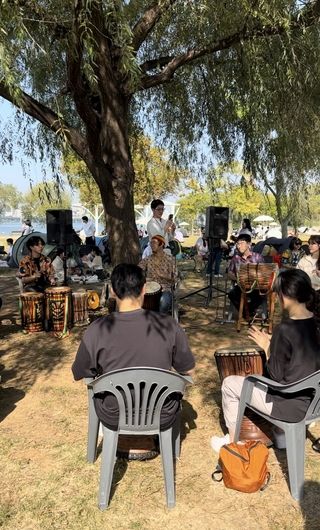
From 3:30 - 8:00 PM on the stage part of the venue, there were music and dance performances from various cultural groups and artists. These performances were part of the Asia Africa Talent Award Show aspect of this festival. As performers sang and danced on stage, audience members would cheer them on. After these performances, there was a Fashion Show displaying local brands that specialize in African-inspired clothing. These two events were definitely the highlight of the festival as people gathered to see these performances.
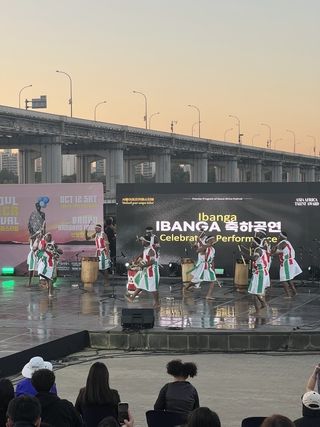
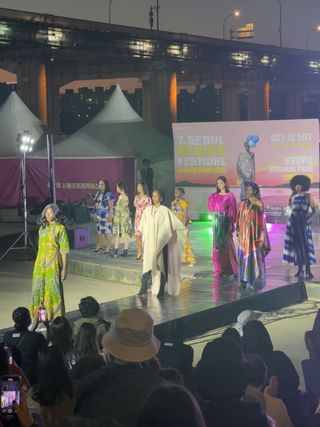
I had a great time at this festival and should I be in Seoul again during the fall, I definitely see myself coming back. And throughout the day at this festival, when people asked me the go-to question, “Where are you from?” I proudly answered “Nigeria and America”.
If you’ll be studying in Seoul in the Fall, you can get information about the festival on Instagram: @seoulafricafestival_official
Related Posts
Eating Away Homesickness
Even though it’s my second time living abroad—specifically in South Korea—that doesn’t make me immune to homesickness. Honestly, it sneaks up on you in the most unexpected ways. Sometimes, it’s... keep reading
K-Pop Stan’s Guide to South Korea: 5 Must-Do Activities While Studying Abroad
By: Jacqueline Lee South Korea is the place to be as a kpop stan, so here are 5 activity ideas that you must do during your time abroad! 1. Collect... keep reading
